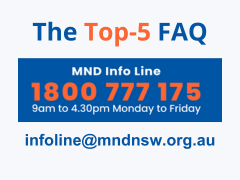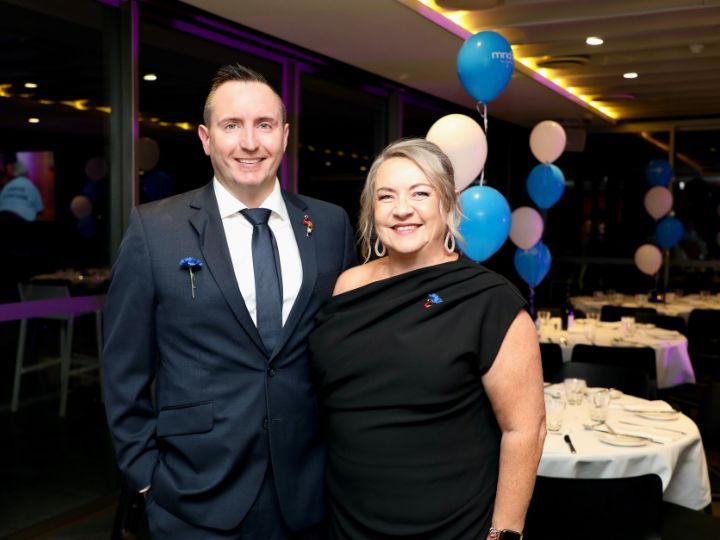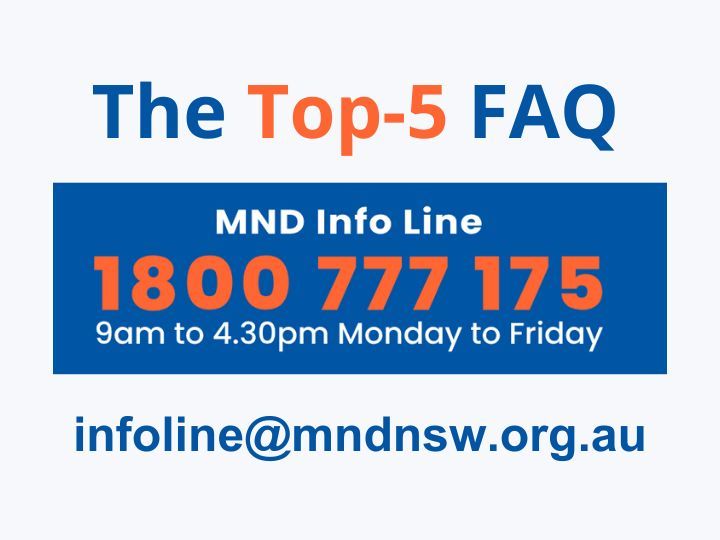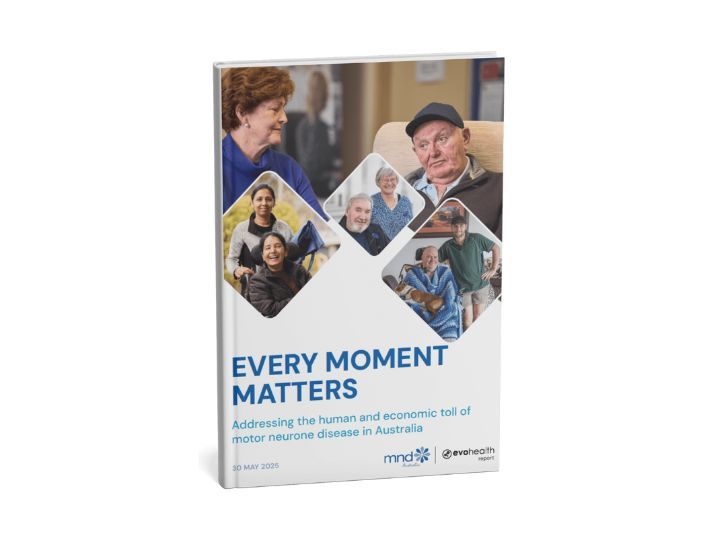We received lots of questions on a variety of topics at the MND info line in May, including, robotic feeders, booking accommodation along with counselling for children. Here are your top-5 questions and answers.
1. What is a robotic feeder and are they accessible through FlexEquip?
Robotic feeders are a form of assistive technology that aid people who have strength and mobility limitations in their arms and hands to eat. The device supports independence at mealtimes by enabling people with MND to be in control of what and when they eat. This can also have positive benefits in increasing social interactions, meal enjoyment, along with overall wellbeing.
FlexEquip offer two types of robotic feeders, the Neater Eater and the Obi. These items are only available to people with a diagnosis of MND accessing NDIS or over 65 years FlexEquip Bundles – Limited. Clinical justification by the referring speech pathologist or occupational therapist is required.
For further information visit:
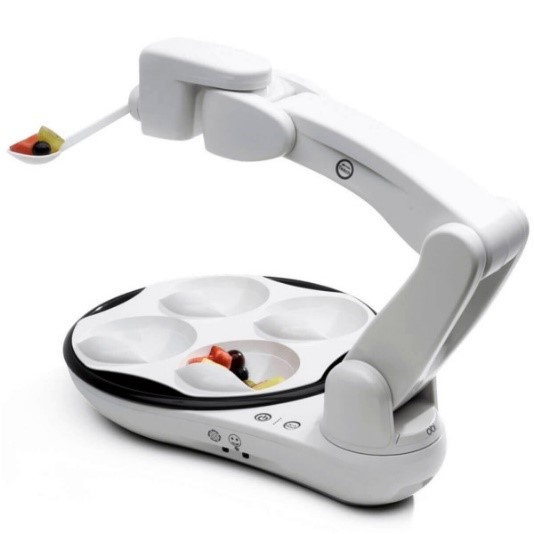
2. What should I consider when booking accommodation for a holiday?
There are an increasing number of accommodation options which are identifying as accessible. However, there are varying degrees of accessibility. It is important to ensure the accommodation you are booking meets your accessibility needs.
The following points are beneficial to consider prior to booking accommodation:
- Is the accommodation close to locations that you will be visiting?
- Is the access to the room, reception and dining areas accessible?
- Is there enough space in the room for safe transfers and storage of equipment?
- Are there steps or small lips around the room?
- Is the bathroom accessible (wide doorway, grab rails, shower chair)?
- Is there a step into the shower?
- Is there a service nearby that you can rent equipment from?
Despite accommodation being marketed as accessible, it is recommended that you contact the accommodation to ensure that it meets your needs. For further suggestions and information visit:
3. Where can I access specialist counselling for my child, so we can work through my MND diagnosis together and be supported with what comes next?
The National Centre of Childhood Grief (NCCG) provides specialist care for grieving children and their families to support them through the ongoing process of grief. It is important that children who are affected by MND are supported to access services to help them understand the diagnosis, manage changes and provide them with bereavement support. Children and young people grieve significant losses just as intensely as adults. It is important that they are provided with support to learn to manage grief. Services from the NCCG can be accessed from the point of diagnosis and can continue throughout the bereavement period.
Services include:
- Child Counselling
- Kids Group: support group for school aged children following counselling.
- Parent and Caregiver Group: a group that provides support and education about supporting a bereaved child whilst dealing with one’s own suffering.
Access to the NCCG is via self-referral, contact details are below:
- Phone- 1300 654 556
This email address is being protected from spambots. You need JavaScript enabled to view it.
4. Are there information sessions available for people who have been newly diagnosed with MND?
We run a monthly online information session for people recently diagnosed with MND.
The session covers the following topics:
- What is MND?
- How can MND NSW support you?
- What is multidisciplinary care?
Thes sessions are best suited to people newly diagnosed with MND as well as their families and friends.
For further information regarding the next session, visit: Living with MND Events or contact the MND NSW Info Line on 1800 777 175.
5. What is a call device?
A call device is used by a person living with MND to alert their carer that they need support. The person with MND can use this device by pressing a button which triggers a noise/alarm, alerting their carer in another room that they need assistance. An assistive technology switch can also be added to these devices to make it easier for someone with MND to request help.
For further information visit:
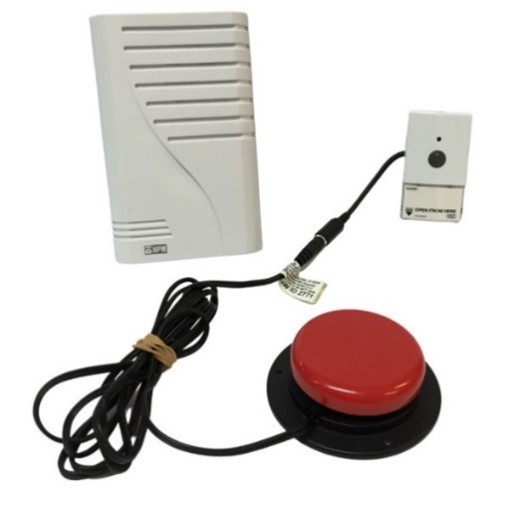
Ask us a question!
Get in touch with us via 1800 777 175 or
Your question might be in our next month’s Top-5!
